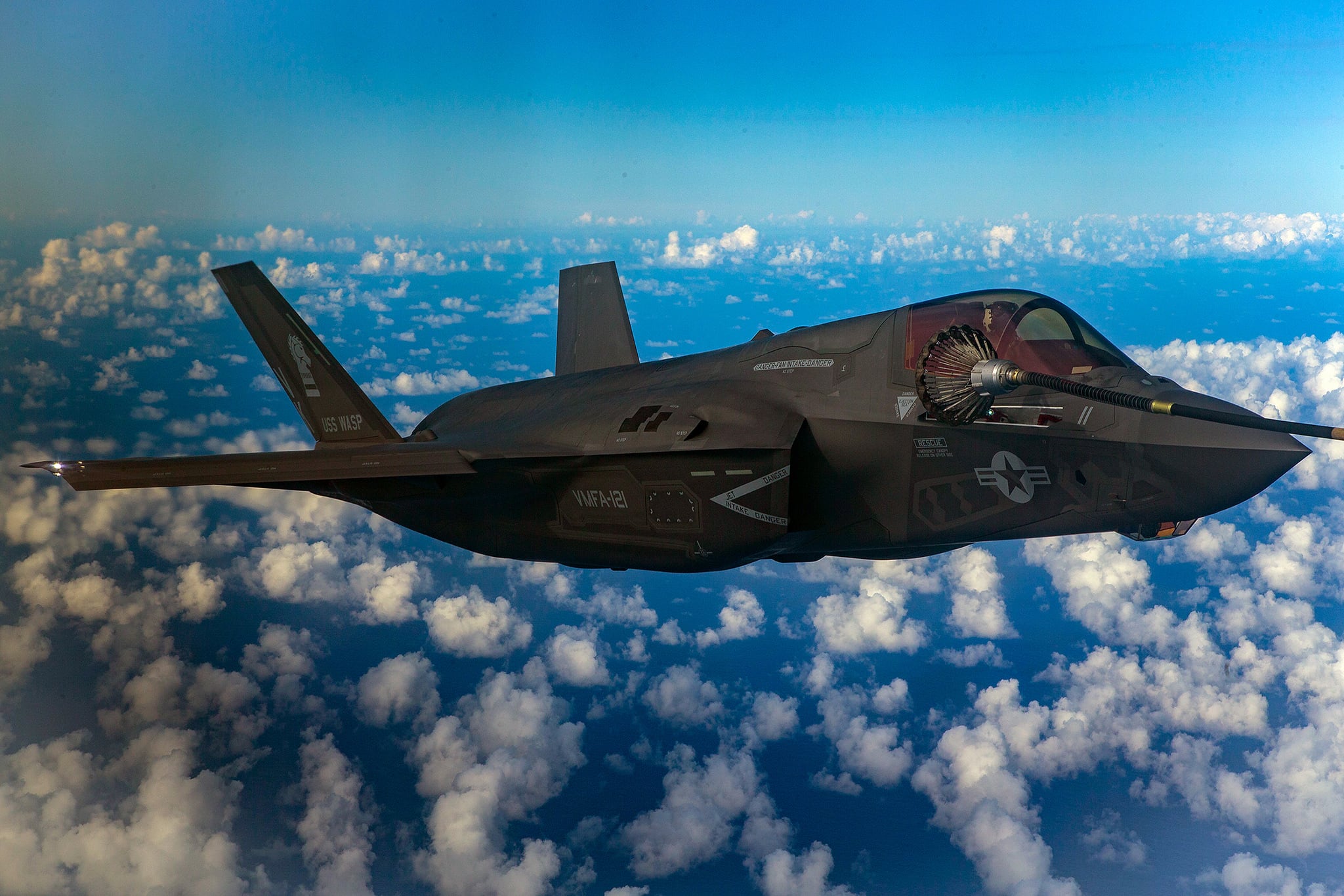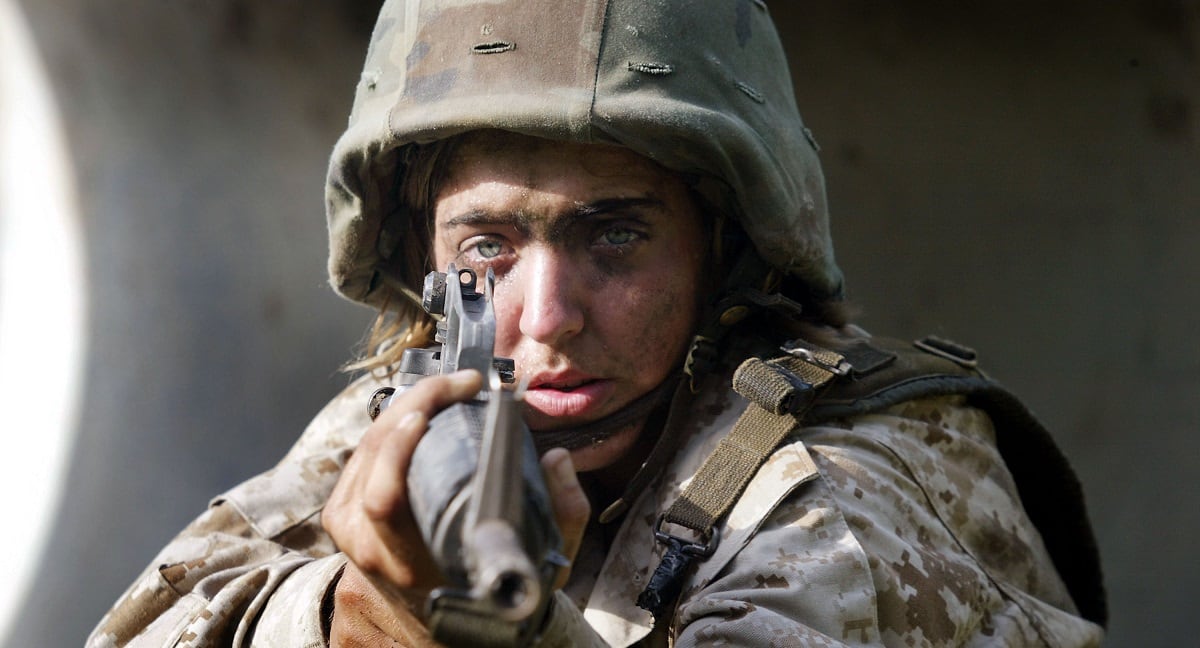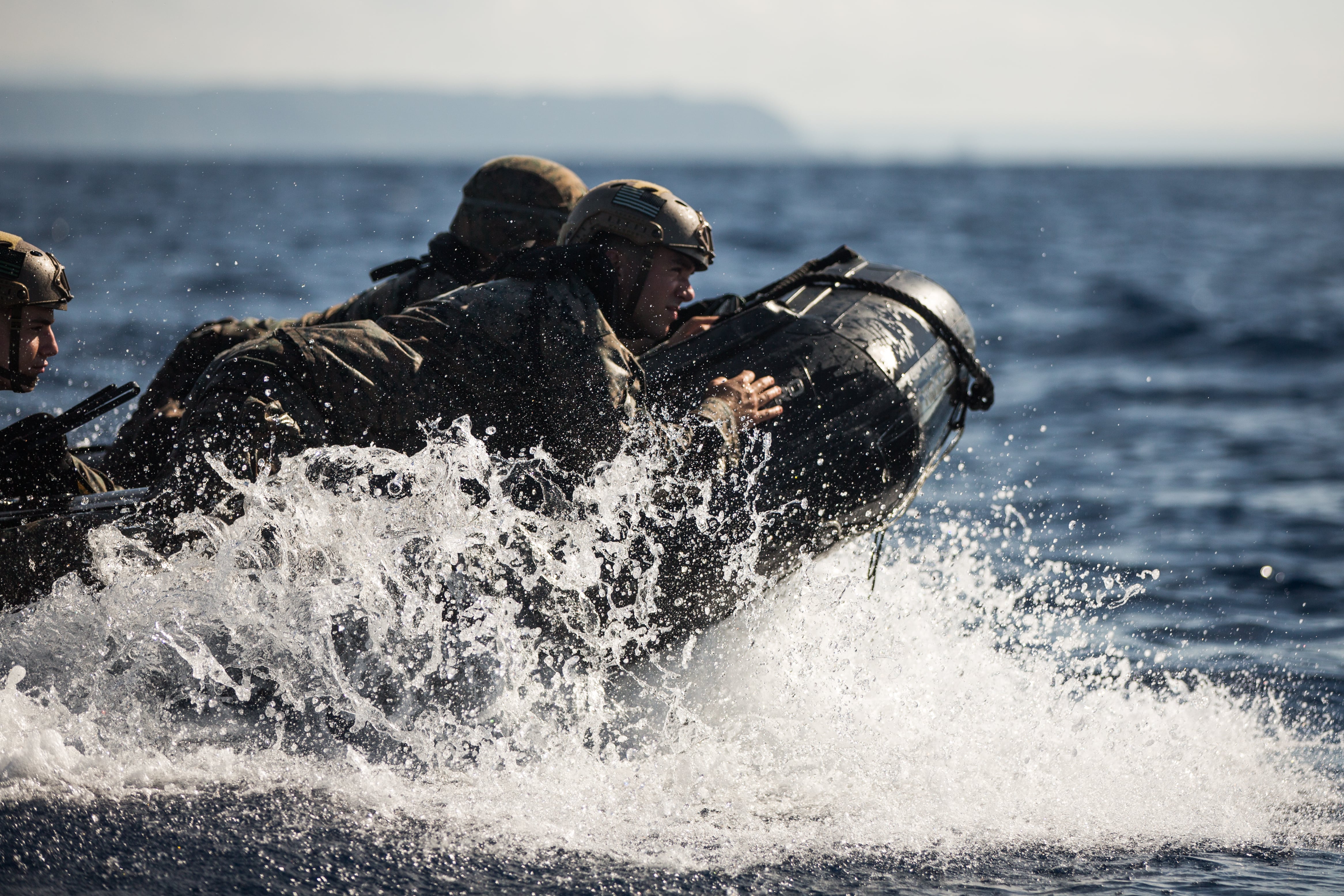For Lt. Col. Michelle Macander being a Marine was a family tradition.
Her grandfather was a Marine infantry officer who fought in World War II, her father and uncle were both Marines. As a kid she would sneak into her father’s closet and try on his uniform and cover.
So one of the first things Macander did when she first stepped foot on the Georgia Tech campus was walk over to Navy ROTC and ask what she needed to do to become a Marine.
A week later she was in a uniform and starting a path that sent her on numerous combat tours, introduced her to her wife, and gave her the opportunity to mentor and train the next generation of Marine officers.
That fateful day also led Macander to make history: She became the first woman to command a Marine Corps ground combat battalion in 2018 when she took over as battalion commander for the 1st Combat Engineer Battalion, 1st Marine Division.
Originally Macander had gone to the The Basic School intending to become an intelligence officer, but once she got her first taste of demolition her plans changed.
“I went through TBS and we spent some time handling demolitions and I was done at that point ― all I wanted to do was be a combat engineer,” Macander told Marine Corps Times in a phone interview on Wednesday.
On Thursday Macander stepped down from her command in the engineer battalion to head to her new assignment at the Naval War College.
And though she may not have specific goals for her own Marine career ― she’s just worried about doing the best she can at her current job ― she does have a few more female Marine firsts she looks forward to.
“We’re the only service that has never had a woman four star general, so that would be exciting to see,” Macander said.
Women in combat jobs
It was in 2016 that the Defense Department approved the Marine Corps’ plan to open up all combat jobs and positions to women.
Female Marines slowly began entering fields that were once banned for them, until 2019 when the Corps saw a 60 percent increase of women in previously all-male units over the year before.
Unlike most ground combat jobs prior to 2016, when Macander was a young officer women were allowed to become combat engineers, with a restriction on which units they were allowed to be assigned to.
It was the job that Macander fell in love with once she got into her military occupational specialty.
RELATED

“There’s amazing leadership opportunities,” she said. “And just the mission of the engineers to really shape the battle space is something that always interested me.”
Without knowing it, Macander’s last-minute change to her preferred career set herself up to make history.
When the ban on women in combat roles was lifted, the combat engineer MOS had plenty of senior women ready to take on the roles previously denied them. Other Marine specialties like infantry and artillery are still struggling to build up their experienced officer corps.
When Macander took over the 1st Combat Engineer Battalion in 2018, the Corps had 10 female 1302 combat engineer officers, compared to only one female infantry officer, Marine Corps Times previously reported.
‘Ready to deploy’
But early in her career Macander wasn’t focused on making history, instead she focused on leading her Marines and becoming a better officer.
“In my career if you’re not so much focused on the next rank, if you’re just focused on doing what you can to take care of your Marines and to do the job that you’re in, in my experience, promotions take care of themselves,” Macander said.
Macander, like many other young Marines, also wanted her chance to go combat.
“9/11 happened when I went to engineer school,” she said on the Wednesday phone call.
“Understanding that the Marine Corps that I joined had just fundamentally changed, once we were done with engineer school we were full of brash officers ready to deploy.”
Her first opportunity for a combat deployment had come almost immediately.
RELATED

As a young lieutenant with Marine Wing Support Squadron 372 based out of Camp Pendleton, California, she took part in the very onset of Operation Iraqi Freedom, first building up a base camp in Kuwait, then finally pushing into Iraq.
Macander so far has gone on four combat tours, which she says shaped her into the Marine she is today.
“It tested me in a way that you just can’t replicate in garrison,” she said.
“It challenged me to see the type of Marine I thought I was … I think I learned about myself that I can be trusted in stressful situations when I need it.”
‘I’m not allowed’
While the rule against women in combat roles did little to keep Macander out of combat, it did limit the jobs she was able to take and the units she was able to be assigned to.
Macander recalled a story from earlier in her career where she was checking out of her unit and her commander who had been a “long-time” combat engineer gave her some career advice.
“He told me to go to a combat engineer battalion afterward,” Macander recalled. “I said, ‘I can’t sir … I’m not allowed.”
“He said ‘that’s stupid.’”
Macander knew from the beginning of her career that she could be a combat engineer, just not in a combat engineer battalion ― a rule she said was missing the reality of the situation with women serving in combat.
“We were in danger just like the other Marines,” Macander said. “Engineers for a battalion or a wing or a squadron, they looked the same as a combat engineer battalion Marines did.”
RELATED

After her third deployment Macander moved into a role as a Marine officer instructor at the University of Colorado, looking to possibly end her career where it began by giving back to an ROTC program.
But her time as an ROTC leader reinvigorated Macander’s desire to be a Marine officer.
“I was a little bit burnt out and I thought I was going to be the end of the road for me that I was going to transition out of the Marine Corps, but just seeing the motivation of the enlisted Marines and the midshipmen who were there, they just re-energized me and kept me in the Marine Corps honestly,” Macander said.
While the motivation kept her in the Corps, Macander had issues that some of the future female Marine officers she was instructing had limits on their careers because of their biology.
“That was a difficulty coming into the Marine Corps and having students that were female understanding that just all of the jobs were not open to females at the time, which has changed and is awesome,” Macander said.
Macander also met her eventual wife while she was working at the University of Colorado. The two became friends while they both lived in Colorado, and over the years their friendship blossomed into more.
Macander credits her wife with giving her the support she needed to handle the stress that comes from being the first female combat arms battalion commander.
“She has taken care of me so I could take care of the Marines and sailors of this battalion,” Macander said.
‘I had to be on’
Macander said she experienced a lot of internal pressure to ensure that she measured up and did not make things harder for the female Marines who would follow her in combat jobs.
“I knew that I was going to be looked at,” Macander said. “If I faltered, in my mind, that would be bad for female Marines that would be following me.”
“I felt like I had to be on and doing the best that I can for the last two years,” Macander said. “I don’t think that’s different than any commander”.
While the internal pressures were great, she said, the 1st Marine Division did a great job of protecting her from external pressures the men in her position would not have had to face.
“I think the 1st Marine Division was actually pretty awesome,” Macander said, giving particular praise for the then-division commander, Lt. Gen. Eric Smith.
When Macander took over the battalion Smith told her he would treat her exactly the same as the other commanders in his division. He also helped prevent external pressure from hitting her.
There were always the behind-the-back or social media comments when her name was brought up, but “there was nothing professionally in my career that I’ve seen someone say to my face or has treated me differently,” Macander said.
Macander said the diversity that comes with opening all jobs to all Marines capable of filling them only has made the Marine Corps stronger.
“I think there is strength in our diversity,” Macander said. “I think having a different background and having Marines see that you can be successful as a female officer, I think is important to those positions.”
Macander acknowledged that it will take a while for women to move up the ranks in fields like artillery and infantry, but she said someday those women who are just captains and lieutenants now will be division commanders, blazing a path in positions that were so recently closed to them.
“And that’s going to be exciting to watch,” Macander said.





